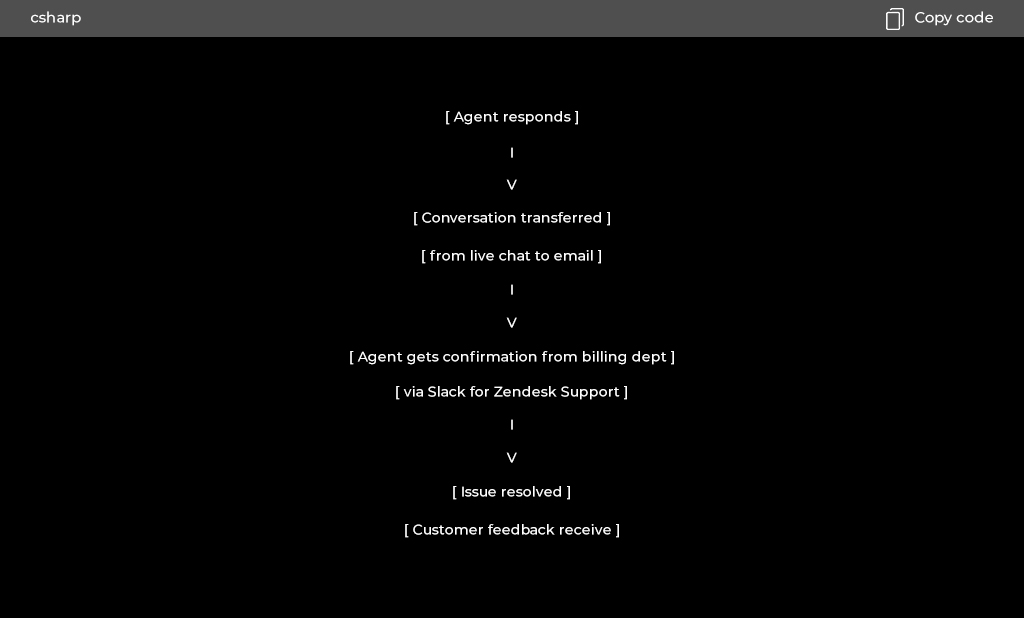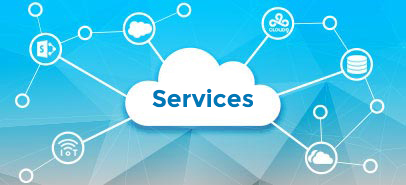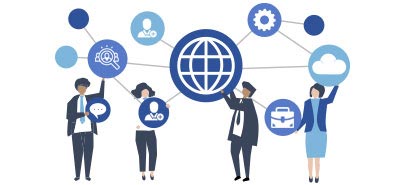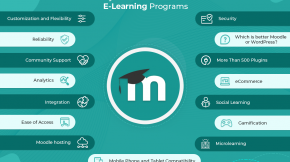The Impact of Omnichannel Customer Experience in a Cloud Economy
In today’s digital age, providing consistent and reliable customer service across various communication channels is paramount for building trust and fostering long-term loyalty. Whether a customer reaches out via social media or email, they should receive the same high-quality service experience. This accessibility not only demonstrates a commitment to meeting customer needs but also plays a crucial role in strengthening the customer-business relationship.
One of the greatest challenges faced by customer support teams is managing multiple systems and platforms. This often leads to inefficiencies, delays, and fragmented customer interactions. However, with an omnichannel support solution in place, businesses can streamline their operations and provide a more seamless experience for both customers and agents.
Understanding an Omnichannel Contact Center
An omnichannel contact center is a centralized hub for customer inquiries that integrates multiple communication channels, including email, phone, chat, social media, and more. This setup allows customers to engage with the company through their preferred channels while providing agents with a unified tool to manage and respond to these requests.
- Customers have the option to submit their requests via their preferred communication channel.
- Agents can access and manage customer requests seamlessly through a unified tool.
- Customer data is automatically retrieved by the software, giving agents valuable context for each interaction.
- Faster and more personalized service is delivered to customers due to streamlined processes and comprehensive information access.
The primary goal of an omnichannel contact center is to simplify customer engagement and enhance the overall customer experience by ensuring consistency and seamlessness across all service channels. By consolidating customer interactions and data, businesses can optimize their operations, improve call center metrics such as First Call Resolution (FCR) and Net Promoter Score (NPS), and eliminate agent errors and frustrations associated with redundant processes.
What is Omnichannel Customer Experience
Omnichannel customer support embodies a holistic strategy aimed at delivering seamless service experiences across every stage of a customer’s journey with a brand. This model strives to unify and integrate multiple communication channels and platforms, facilitating streamlined interactions and ultimately providing customers with a cohesive and gratifying experience.
The need for an omnichannel contact center arises from the desire to:
- Increase call center metrics such as FCR and NPS.
- Reach customers through various channels, including social media, email, SMS, chat, or any other self-service systems
- Eliminate agent productivity with automated case assignments
- Have a unified, easy-to-navigate interface that would allow agents to communicate optimally with customers regardless of their preferred channel.
Unlock Omnichannel capabilities in your CRM System
By integrating with existing tools and applications, such as CRM systems and communication platforms, omnichannel support consolidates information into a unified customer view. This consolidation not only reduces the time spent navigating between systems but also enables faster response times and more efficient issue resolution. As a result, businesses can deliver a more cohesive and effective support experience, ultimately driving greater customer satisfaction and loyalty.
This integration enables agents to communicate effectively with customers regardless of their preferred channel, ultimately enhancing customer satisfaction and loyalty. Additionally, having a unified and intuitive interface empowers agents to navigate seamlessly between channels, leading to more efficient and effective customer interactions.
A typical CRM scenario: Omnichannel Customer Experience Example
Introduction:
- Brief overview of the challenges in delivering cohesive customer support across various channels.
- Introduction to how Dynamics 365 Omnichannel transforms the customer support experience.
Agent Responds to Live Chat:
- Importance of real-time engagement and how the agent initiates the support process.
Conversation Transferred to Email:
- Exploring the need for transferring the conversation to email for enhanced security.
- Emphasis on the smooth transition while maintaining continuity.
Agent Confirms with Billing Department via Slack for Zendesk Support:
- Highlighting the integration capabilities, using Slack for Zendesk Support for confirmation.
- The significance of obtaining approval from the billing department before proceeding with a refund.
Issue Resolved:
- The agent acts by initiating the refund, efficiently resolving the customer’s concern.
- The ticket is closed as part of the streamlined support process.
Customer Satisfaction (CSAT) Survey:
- Explaining the post-resolution CSAT survey as a tool for gathering feedback.
- The immediate request for the customer to share their experience.
Customer Feedback Received:
- Showcasing the positive feedback received, emphasizing fast service and a seamless experience.
- The importance of customer satisfaction as a key indicator of successful support interactions.
Results
- Recap of the omnichannel journey and its positive impact on customer satisfaction.
- Encouragement for businesses to embrace Dynamics 365 Omnichannel for elevated customer support experiences.

Embrace Self Service with Omnichannel Customer Experience
The self-service revolution is reshaping the industry, emerging as one of the fastest-growing service channels. According to Forrester Research’s North American Consumer Technographics Customer Life Cycle Survey, consumers are increasingly turning to self-service FAQ pages on company websites for customer support, surpassing traditional live agent phone calls.
For millennials, self-service is a primary channel, with 69% expressing satisfaction when resolving issues without direct contact with customer service representatives. Gartner predicts that over 85% of customer interactions will be automated by 2020, with chatbots leading as the top consumer application of AI in the coming years.
The key components of Dynamics 365 Omnichannel
Dynamics 365 Omnichannel, a customer service solution by Microsoft, empowers businesses to interact with customers seamlessly across multiple channels including email, chat, social media, SMS, and voice. Here are key features:
- Unified Agent Desktop: Agents access a single interface to manage customer interactions from various channels, providing a unified view of customer history and preferences.
- Multi-Channel Engagement: Customers initiate conversations through preferred channels, while agents respond and resolve issues seamlessly across these channels.
- AI-Powered Insights: Leveraging AI, Omnichannel offers real-time insights and recommendations to agents, enabling personalized and effective support.
- Routing and Queuing: Customer inquiries are automatically routed to the most suitable agent based on skillset, availability, and priority, ensuring efficient handling.
- Integration with CRM: Integrated with Microsoft’s CRM platform, Omnichannel allows businesses to capture, track, and manage customer interactions and data, enabling performance measurement.
- Customizable Workflows: Organizations customize workflows and business rules to deliver tailored support experiences, aligning with their brand identity.
Dynamics 365 Omnichannel facilitates a consistent and seamless customer service experience across all channels, contributing to higher customer satisfaction, loyalty, and retention.
Conversational Analytics within MS Dynamics 365
Conversation analytics plays a crucial role in enabling organizations to comprehend every customer touchpoint, offering the flexibility of utilizing multiple communication channels. These valuable customer insights can drive improvements across various business functions, including marketing, finance, and operations. Leveraging a comprehensive conversation analytics solution, such as Microsoft Copilot, can serve as a vital resource for customer journey mapping by transcending siloed and channel-specific boundaries, capturing insights from 100% of customer interactions.
By developing a unified view of the customer journey, organizations can conduct historical contextual analysis, gaining valuable insights into past interactions. This enables them to:
- Easily navigate to previous or subsequent interactions from the same customer, facilitating a deeper understanding of their journey.
- Identify the root cause of repeat contacts and poor first contact resolution, even across multiple channels, leading to more effective problem resolution strategies.
- Capture information across a multitude of platforms, ensuring a comprehensive understanding of customer interactions regardless of the communication channel utilized.
Conversational analytics powered by Microsoft Copilot empowers organizations to gain actionable insights from every customer interaction, driving enhanced customer experiences and operational efficiency across the board.
Case Management System built on MS Dynamics 365
A case management solution powered by Microsoft Dynamics 365 and hosted on Azure cloud is versatile, covering various case types including complaints, investigations, inspections, and grant management. It streamlines operations by automating and digitizing processes, enhances citizen interaction through a public portal, and provides robust reporting and business intelligence capabilities.
Key features of this solution include:
- Automated Help-desk Ticketing
- IVR to Lead Capturing
- Chatbot to CRM Lead Capturing
- Automated Task Assignment
- Voice of Customer Integration
- Integration with Microsoft Office
- Reporting & Analytics on Power BI
- Self-service Virtual Agents
- Real-time Sentiment Analysis
- Context-driven Agent Suggestions
- Merge Similar Cases
- All-in-one Contact Center
These features collectively contribute to improving efficiency, enhancing customer satisfaction, and driving informed decision-making within the organization.
Takeaways
Automation and self-service options play a crucial role in optimizing agent efficiency and improving customer experience. By automating tasks such as sending product information, scheduling appointments, and responding to common queries, agents can focus their time on inquiries that require personalized attention. Self-service options empower customers to access information anytime, day or night, enhancing their overall satisfaction.
Thanks to this fully integrated digital solution, which offers a single point of contact for all queries, agents can handle a significantly higher volume of inquiries, leading to improved productivity and cost savings for the company. Key benefits include:
- Agent productivity and capacity have more than doubled.
- Interactive navigator on website and app provides easy, fast self-service digital resolution.
- Streamlined interactive interface simplifies call handling for agents across all channels.
- Frees up agents to handle more complex inquiries, improving morale and decreasing turnover.
- Improves customer mood and patience by reducing hold times.
- Reduces average call duration and cost per call.
Overall, this integrated approach earns the company an A+ grade in customer experience, demonstrating the effectiveness of automation and self-service options in enhancing both agent efficiency and customer satisfaction.





















